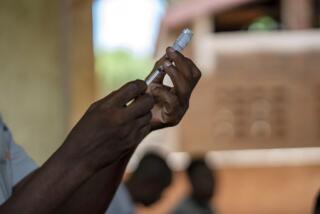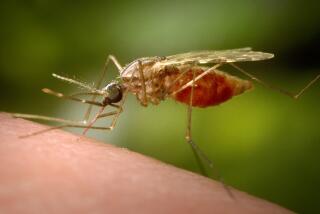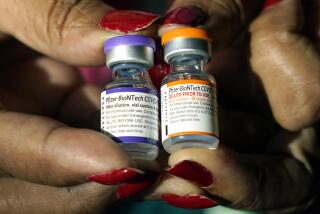Malaria vaccine trial reports disappointing results
- Share via
Researchers reported results well below expectations from the large and closely watched clinical trial of the RTS,S malaria vaccine Friday morning. The vaccine reduced malaria by only about one-third in the children who received it, compared to controls. The trial disappointed many involved, including researchers on the vaccine development team and its marquee funder, the Bill & Melinda Gates Foundation, which gave $200 million to the effort. Malaria remains a deadly disease, killing over 600,000 people a year--many of them children in sub-Saharan Africa.
The results were announced at the International African Vaccinology Conference being held in Cape Town, South Africa, and were also published simultaneously in the New England Journal of Medicine.
The vaccine is the product of a public-private partnership between the PATH Malaria Vaccine Initiative, or MVI, and the pharmaceutical company GlaxoSmithKline. The partnership began development of the vaccine in 2001, and the trial has since spread to 11 research sites in Africa.
The vaccine was administered to young infants, and the trial tested its efficacy over a period of about a year. Reducing malaria incidence by one-third may seem like a win for the team, but expectations were far higher because of the successes of smaller earlier trials. In one such trial during Phase II, the research team found the vaccine provided a 62% reduction in malaria cases—a near doubling compared to the present trial. And a study of older babies found a 55% reduction. Many experts view a 50% reduction in cases as the minimum efficacy required for the vaccine to be worth deploying.
In a statement, Bill Gates expressed concern about the future of the vaccine in the face of the results. “The efficacy came back lower than we had hoped,” Gates said. “The trial is continuing and we look forward to getting more data to help determine whether and how to deploy this vaccine.”
In other words, if the disappointing results are confirmed in future trials—all the data is expected to be in by the end of 2014—the once-promising vaccine may never see its way to market.
Return to the Booster Shots blog.






